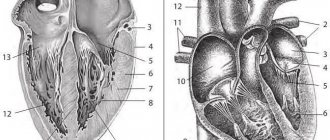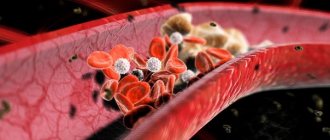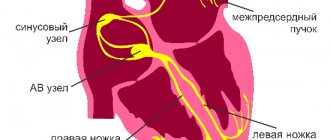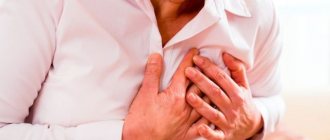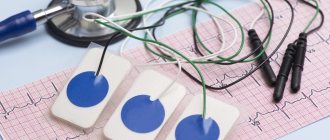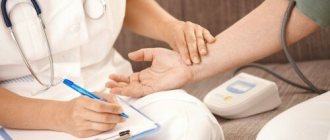Home — For the public
- Map of medical organizations
- Vaccination
- Clinical examination
- Fluorography
- Addresses and opening hours of clinics
- Emergency rooms
- Oncology
- Where to take an HIV test
- Healthy child's office
- Services
- Prevention of CVD
- Disease Prevention
- World Patient Safety Day
- Newspaper "Medical News"
- specialist
- School of Health
— Disease prevention
- HIV infection
- All about vaccination
- All about proper nutrition
- Hepatitis
- Flu
- Dementia
- Schoolchildren's health
- STD
- Tick-borne encephalitis
- Whooping cough
- Measles
- Legionellosis
- Meningococcal infection
- Oncology
- Acute intestinal infection
- Pediculosis
- First aid
- Pneumococcal infection
- Pneumonia
- Prevention of rabies
- Dependency Prevention
- Rotavirus infection
- Diabetes
- Cardiovascular diseases
- Injuries
- Tuberculosis
- Tularemia
- Physical activity
- Obstructive pulmonary disease
- Exotic infections
- Ecology
- Why is swimming in ponds dangerous?
— Cardiovascular diseases — How stress and negative emotions affect the development of vascular diseases
They say: “all diseases are from nerves,” they warn: “don’t take it to heart,” or “it can break your heart.” The pathophysiological model describing how stress affects health was created by Hans Selye more than 60 years ago. How does the heart react to overstrain, unexpressed emotions, fears and doubts? And is it possible to somehow “tune it in a new way”?
Gymnastics for heart neurosis
Experts have developed a special complex of physical therapy for this pathology.
- Lunges for 1-1.5 minutes, first with one leg, then the other.
- Deflection of the torso. The leg is pulled back, the upper body also bends back. Then the same is done with the other leg. The exercise is repeated 5-8 times on each leg.
- Squat on one leg, while holding onto a chair. Repeat 2-5 times with each leg.
- Rotational movements of the body, first in one direction, then in the other. Repeat 3-6 times.
- Imitation of boxer punches. You need to breathe in a random order. Make 8-15 blows with each hand.
In some specialized neuropsychiatric clinics, there are special neurosis departments in which patients with different variations of this disease are treated. Often, patients are brought to such departments by the presence of panic attacks, which can often be combined with migraines or other pathologies that debilitate the patient.
What other symptoms can be observed with neurosis?
In addition to the above clinical manifestations, additional symptoms may be observed:
- One of the types of cardioneurosis is autonomic neurosis, which is often present as a symptom complex in pathological menopause, and in addition, in other hormonal disorders. In the presence of a pathological menopause, autonomic neurosis is called autonomic dyshormonal cardiodystrophy. Clinically, this disease can manifest itself as cardialgia of a cutting and pressing nature. Sometimes the pain can radiate to the arm and shoulder blade; among other things, the rhythm may become faster. Such painful sensations do not depend in any way on physical activity, and a state of rest as such does not bring relief. In addition, Nitroglycerin also does not give any effect.
- Symptoms in the form of sweating, hot flashes, shortness of breath, dizziness, parasympathetic crisis, tachycardia or bradycardia, trembling, hyperemia or pallor of the skin indicate some specific autonomic problems.
- With cardiac neuroses, manifestations in the form of high blood pressure, headaches and heart pain can also be observed.
Causes of VSD
The basis of the disease is a violation of the neurohumoral regulation of the autonomic nervous system, which is responsible for the stability and coherence of the activities of all internal organs and the body as a whole. This is a department of the nervous system that is not subject to the consciousness and control of the human will.
There are many causes of the disease. Among the first are hormonal disorders, including transient ones - during puberty, menopause, and pregnancy. Infectious diseases (including physical detraining after infection), foci of chronic infection (caries, sinusitis, tonsillitis), and allergies play a significant role. Psycho-emotional stress, traumatic brain injuries, a sedentary lifestyle, bad habits - smoking, alcohol, unhealthy diet - predispose to the disorder. Hereditary predisposition is important.
Symptoms of cardiac neurosis
Manifestations of cardiac neurosis that the individual himself can identify:
1. Pain in the heart during neuroses tops the list of “symptoms” in terms of the severity of their perception by the individual. As a rule, pain spreads to nearby areas. This is the so-called cardialgia, which must be distinguished from angina pectoris, which requires serious treatment.
How the heart hurts, symptoms of neurosis.
Heaviness of the heart with neurosis is quite common. Or burning sensations in the heart of varying degrees of manifestation can also help diagnose neurosis. In addition, the pain can be characterized as dull, stabbing, cutting and vary in duration. It all depends on the mental makeup and emotional background of a particular person. Therefore, heart pain due to neuroses does not always require treatment.
2. Chills or hot flashes. Sweating is common.
3. Shortness of breath (rapid shallow breathing), which appears due to lack of air. The symptom may be chronic.
- Cardioneurosis symptoms and treatment
4. Tachycardia (increase in heart rate) or bradycardia (decrease). They can change during the day depending on the psychological state.
5. Involuntary muscle contractions, manifested in the form of nervous tics and tremors (shaking). They may have varying degrees of severity, including involuntary movements of the body.
6. Paleness of the skin, which can be present either constantly or appear at a time of crisis. It all depends on the degree of depression of the nervous system.
7. Decrease in blood pressure or increase, as well as changes in extreme values.
8.Such isolated and seemingly insignificant symptoms as headache or dizziness also occur when considering the question “Heart neurosis symptoms and treatment
So, we answered the question “How is cardiac neurosis expressed?”
IMPORTANT! All of the listed symptoms do not appear individually if there is a suspicion of cardiac neurosis. For example, emerging negative nervous states provoke all or part of the physiological manifestations of the disease, which in turn entails increased emotional stress. The process is closed. In general, this condition is often characterized as a panic attack, which is an attack of deep, comprehensive fear or anxiety and is accompanied by the listed physiological manifestations. To some extent this is true, but the chain of events can be composed of a rearrangement of symptoms and begin with minor changes in the functioning of the heart. However, Heart Neurosis, symptoms and treatment suggests that the basis for the occurrence of the disease is always a psychological component, which triggers the process in a chain with an absolutely healthy heart or aggravates existing, but minor changes in its work. It is important that the real impact of neurosis on the heart with the listed symptoms is often not observed (for example, on an ECG machine). However, symptoms can develop into actual manifestations that are recorded during the diagnostic process.
Who handles stress worse?
Will everyone who is under acute or chronic stress “take it to heart” and develop chronic diseases? Psychologists and psychiatrists have been studying the causes of psychosomatic disorders for more than 50 years. Thus, American cardiologists Friedman and Rosenman in 1960 first described the traits of a person predisposed to coronary artery disease and called it “type A.” Scientists analyzed the incidence of the disease in people of both sexes in different countries. The study showed that in countries where heart attacks are more common in men than women, the behavior and lifestyle of patients had characteristic features:
- ambition and lack of flexibility. These qualities were combined with a high level of efficiency, a need for recognition, and a desire to compete with others even in situations where this was not so important;
- desire to control combined with impulsiveness. This led to attempts to work in several directions simultaneously;
- Difficulties in interpersonal relationships due to inflexibility and self-centeredness. Such people are easily offended, break ties if they cannot achieve what they want, and those around them do not want to “lose” to them;
- the desire to interrupt others and independently finish phrases in dialogue, the lack of “adjustment” to the interlocutor. Dramatic speech, high speed of associations;
- expressive facial expressions and gestures that often indicate muscle tension: gnashing of teeth, “chewing” movements of the lower jaw, clenched fists;
- sharp breathing with frequent sighs, demonstrative exhalations in conversation, designed to place emphasis;
- high speed of work and life, such people perform several tasks simultaneously, without counting their resources.
High sympathetic nervous system tone makes Type A people very sensitive to stress. Representatives of type B are not like that: they are in no hurry, lack the spirit of competition, can give in and not complete some things.
In general, cardiac risk is higher in older people, patients with concomitant diseases: myocardial infarction, coronary heart disease, transient ischemic attack (or stroke), diabetes mellitus, history of arterial damage. The situation is aggravated by hypercholesterolemia, excess weight, and bad habits. To predict the probability of disease, cardiologists use different scales.
Does your heart really hurt, or does it just seem like it?
Heart pain in the presence of neuroses can be considered a natural phenomenon. Considering that patients suffering from neurosis are characterized by pronounced emotionality, cardialgia in such patients can often be provoked by anxiety, conflict or simple expectation. Thus, everything is built on emotions, not only on negative impressions, but also on positive ones. For example, upon learning good news, a person clutches his heart.
How do pain in the heart manifest itself during neurosis?
- Pharyngeal neurosis: can your throat hurt from nerves?
Reaction to stress
Stressful situations can unfold quickly (acute stress) or “undermine” a person’s health day after day (chronic stress). In the first case, the body's reaction may manifest itself in the form of takotsubo stress cardiomyopathy or the so-called “broken heart syndrome”. With this disease, the heart muscle temporarily loses its ability to contract, the apex of the left ventricle expands, and the thickness of the wall decreases. A person may die from a dangerous arrhythmia, wall rupture, or heart failure.
Chronic stress affects more than just your heart and blood pressure levels. It changes behavior, disrupts the functioning of the endocrine glands, which collectively leads to serious consequences. If acute stress either kills a person or makes it possible to survive the situation and try to move on, then chronic overstrain often seems to push one to drink alcohol and smoke. These addictions and other bad habits associated with them change lifestyle and further worsen the condition of patients.
Prolonged nervous tension can trigger the following changes:
- To “calm down,” a person begins to consume sweets, baked goods, and other high-calorie foods.
- A high content of trans fats and animal fats disrupts the balance between the fractions of good and bad cholesterol, and atherosclerosis progresses.
- High-calorie foods with a high glycemic index can provoke insulin resistance and lead to type 2 diabetes, a complication of which is damage to small vessels.
- The persisting “combat” concentration of cortisol also negatively affects carbohydrate metabolism.
- Body weight increases and the load on the cardiovascular system increases. Hypertension occurs.
- The walls of blood vessels become denser and their lumen narrows. The likelihood of a stroke or heart attack increases.
How to recognize someone who will cope worse with stress and negative emotions? It is worth paying attention to the following destructive traits in his behavior:
- works too much;
- tries to “take on” and heroically solve too many problems;
- cannot get enough sleep regularly, sometimes forgets to sleep;
- has difficulty making important decisions, hesitates;
- often rushes, but cannot do the job well enough;
- eats food to relax and calm down;
- drinks and/or smokes;
- eats food very quickly;
- irritable, speaks quickly.
If you notice such personality traits in yourself or a loved one, you should take care of your health in advance: learn to “let go” of events, take your time, and not “eat and wash down” stress.

